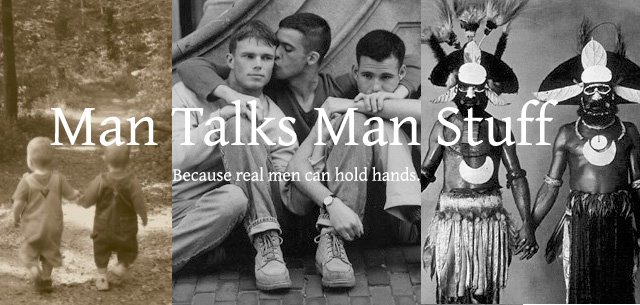skip to main |
skip to sidebar
Name: breeder [noun]
Some people like to refer to heterosexualists as "breeders" stressing that the latter are defined by their capacity/duty/want to reproduce or "breed". We think this is not only unfair but a fallacy. It is absurd to think heterosexualists generally desire for offspring and homosexualists generally abstain from begetting them. Also, calling heterosexualists 'breeders' is potentially offensive as it suggests that reproduction comprises the primary use of their sexual identity.
 Remember that reproduction is a biological function. The only people exempt from this function are those who cannot successfully reproduce offspring ie: the infertile (and even there, there is some chance to reproduce). Homosexuality does not render a person infertile nor does heterosexuality promote fertility. Simply put, you do not even need a sexual identity to reproduce. For blokes, you just stick it in and the rest will follow.
Remember that reproduction is a biological function. The only people exempt from this function are those who cannot successfully reproduce offspring ie: the infertile (and even there, there is some chance to reproduce). Homosexuality does not render a person infertile nor does heterosexuality promote fertility. Simply put, you do not even need a sexual identity to reproduce. For blokes, you just stick it in and the rest will follow.
Silly, silly label. Almost anybody can be a breeder.
The second part of 'Setting Things Straight' is nigh. It is a series on the terms, names, and labels many people today use that, as we believe, need a lot of questioning before we actually use them. You are also invited to question them as much as you want, given that you put a lot of thought in it (yes, we do not allow nonsense here).
The first term/label to scrutinise is "breeder".
Sex refers to the male and female duality of biology and reproduction. Often, individuals of the two sexes attract one another and communicate their readiness to procreate through biological changes, or, in social species, through courtship behaviours.An organism's sex is defined by its biological role in reproduction, not according to its sexual or other behaviour. The female sex is defined as the one which produces the larger gamete and which typically bears the offspring. In contrast, the male sex has a smaller gamete and rarely bears offspring. (In humans and other mammals, only the female sex may bear the offspring.)
Gender, in common usage, refers to the social differences between males and females. Gender identity is an individual's self-conception as being male or female, as distinguished from actual biological sex. Gender and sex are not interchangeable. A cisgendered individual is someone who feels their sex and gender are "consistent”; they have male reproductive organs and can derive a strong psycho-emotional affiliation with that possession. An intergendered individual is someone who feels their sex and gender are inconsistent; they have male reproductive organs but feel a strong psychological/emotional affiliation with the opposite sex; they often have a tendency to resort to transvestism ("cross-dressing"). A transgendered individual is someone who feels they belong to both male and female.Sexuality refers to sexual behaviour in all sexual organisms. Human sexual behaviour or different human sexual practices encompass wide range of activities such as the search for a partner or partners, interactions between individuals, physical or emotional intimacy, and sexual contact. Sexual orientation refers to the direction of an individual's sexuality, usually conceived of as classifiable according to the sex or gender of the persons whom the individual finds sexually attractive. The most commonly used categories of sexual orientation are heterosexuality (being sexually attracted to members of the opposite sex), homosexuality (being sexually attracted to members of the same sex), bisexuality (being sexually attracted to members of either sex) and pomosexuality (being attracted to people without the distinction of gender or sexuality). There have been many discussions on whether sexual orientation is mostly malleable or predetermined.The terms gynephilia (sexual attraction to females) and androphilia (sexual attraction to males) are occasionally used when referring to sexual orientation as many find the terms homosexual and heterosexual to be unclear in several respects.
Sexual identity may be used as a synonym for sexual orientation, but the two are also sometimes distinguished, with identity referring to an individual's conception of themselves, and orientation referring to "fantasies, attachments and longings" and/or behaviour. In addition, sexual identity is sometimes used to describe a person's perception of his or her own sex, rather than sexual orientation. The term sexual preference has a similar meaning to sexual orientation, but is more commonly used outside of scientific circles by people who believe that sexual orientation is, in whole or part, a matter of choice.
 Remember that reproduction is a biological function. The only people exempt from this function are those who cannot successfully reproduce offspring ie: the infertile (and even there, there is some chance to reproduce). Homosexuality does not render a person infertile nor does heterosexuality promote fertility. Simply put, you do not even need a sexual identity to reproduce. For blokes, you just stick it in and the rest will follow.
Remember that reproduction is a biological function. The only people exempt from this function are those who cannot successfully reproduce offspring ie: the infertile (and even there, there is some chance to reproduce). Homosexuality does not render a person infertile nor does heterosexuality promote fertility. Simply put, you do not even need a sexual identity to reproduce. For blokes, you just stick it in and the rest will follow.




